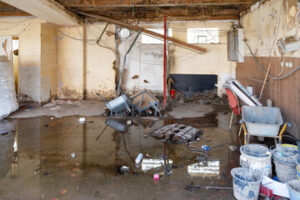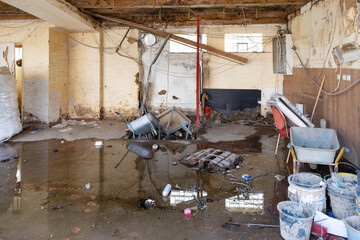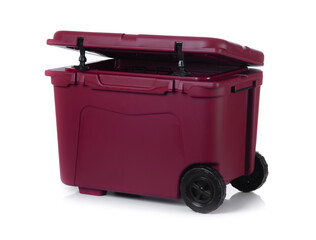Water Damage Los Angeles is one of the most common and expensive home insurance claims. It can be caused by natural disasters, flooding, or manmade accidents like faulty plumbing.
It is essential to inspect your home regularly for signs of water damage. If you spot any problems, take immediate action to prevent further damage.
Leaks are among the most common sources of water damage in homes and businesses. They can occur anywhere in a building, from faulty pipes to leaky appliances. A leaking toilet or dripping faucet may seem minor, but they can lead to significant and expensive damage if left unchecked. Homeowners should regularly inspect their plumbing for leaks, including listening at night for sounds of dripping water or looking for moisture in the walls and floors.
Clogged drains can also contribute to water damage. The longer water sits in a drain or pipe, the more likely it is to corrode or cause mold and bacteria growth. It’s important to clean drains regularly and install drain screens to catch debris.
Broken appliances, especially washers and dishwashers, are another common source of water damage. They can overflow and cause serious water damage if not repaired or replaced promptly. It’s important to keep an eye on these appliances and replace them once they show signs of wear and tear.
A blocked sewer line can lead to wastewater reversing direction and flowing back into a property. This can cause major water damage and create health hazards from sewage contaminants. The best way to prevent sewer backups is to maintain your property’s sewage system, which includes regular cleaning and inspections.
Older buildings and homes often have aging pipes and plumbing systems that can rust, crack or burst. A change in weather or water pressure, as well as soil erosion, can cause these pipes to break. These are often the most costly types of water damage to repair.
It’s important to check your ceilings for signs of water damage, such as discoloration or sagging areas. Water stains and bubbling paint on walls are also indicators of a problem.
When water enters electrical systems, it can create short circuits and power outages. This can also lead to fires and electrical shock, putting the safety of building occupants at risk. Water infiltration can also cause corrosion and electrical failure, so it’s important to regularly inspect electrical systems for signs of water damage and to have any issues addressed immediately.
Floods
Floods are a natural disaster that occurs when an area is covered by water or mud. They typically happen when heavy rain or snow melt causes more water than soils can absorb or rivers can carry away. They can also occur when a dam or levee fails or when ice jams cause river waters to rush through areas that are normally dry.
Flooding can be very destructive, leaving behind a trail of destruction that includes damaged buildings and contaminated soils. It can also affect infrastructure and the supply of food, fuel, and drinking water. It is also a major cause of loss of life, especially when people are caught in fast-moving water or when they are trapped in swollen buildings.
The damage caused by flooding can be very severe and can take months to repair. Flooding is also often difficult to predict and can be very dangerous. For this reason, people who live in prone areas should be prepared for the possibility of flooding by making sure their homes are equipped with the proper protections and taking other precautionary measures.
Although there are a number of different causes of floods, excess rainfall is the most common one. This can be due to the intensity of the rain, or it could be the result of a slow onset that allows for time to prepare. Other factors that can contribute to flooding include the type of ground, which is more prone to being saturated than other types; the build-up of sediment in rivers and streams; and the failure or overflow of sewers and dams.
When flood waters enter a home, they can bring with them bacteria, parasites, mold, and other contaminants. This is referred to as Category 3 water and should only be cleaned by professionals who have been trained in proper disinfection techniques. Floodwaters can also contain raw sewage, which poses a significant health risk to residents.
People who have been affected by flooding should wait for the all-clear from authorities before returning to their homes or businesses. Even if the area seems safe, there could be serious structural or electrical hazards that will only become apparent after the water has receded.
Dehumidifiers
Moisture is a property owner’s worst enemy; it can promote the growth of mold, cause wooden floors to warp and lead to plaster and other materials cracking and discolouring. This is why a professional restoration company will use a dehumidifier to extract excess moisture from the air and damp surfaces following water damage.
The moisture-absorbing machines suck the air in through one side, pass it over cold coils or other cooling apparatus, and condense the water vapor into liquid form before dumping it in a container on the other side of the machine. Once the container is full, the fan blows dry air back into the room, effectively removing the moisture and reducing humidity to more comfortable levels.
As well as lowering humidity, the appliance can also reduce the unpleasant musty odours that accompany damp rooms and help make properties more inviting to prospective buyers, who will be put off by the presence of mould and mildew in a home. Dehumidifiers can also help a buyer’s mortgage lender relax its lending criteria, as it may not be necessary to carry out extensive renovation work to meet its terms, as the moisture problem will be solved.
Dehumidifiers can be expensive to run, but they can save money in the long run by preventing the deterioration of woodwork and other building materials and by protecting against costly mould and damp problems in the future. They can also be used to protect clothes, furniture and carpets from water damage.
Lingering moisture can wreak havoc in both residential and commercial properties, causing serious and expensive structural damage to walls, ceilings and floors. Dehumidifiers can prevent this, and even restore a property’s value.
It is important to check your dehumidifier regularly, and particularly after a flood or a water leak. A damaged hose or a cracked tank can result in messy leaks that can cause damage to surrounding surfaces and can make the dehumidifier unusable. A stuck float switch can also cause the machine to continue running even when its tank is full, and it is worth double-checking that this isn’t the case before using the device.
Mold
Mold is a common consequence of water damage in residential and commercial buildings. Moisture and warmth create an ideal environment for the growth of fungi, which can destroy building materials and cause structural issues. It also releases harmful spores into the air that can irritate the eyes, nose, throat and lungs of building occupants.
Mold growth is often caused by plumbing failures and leaks, but it can also occur due to natural disasters and other events that overwhelm drainage systems. In addition, a number of factors can contribute to moisture buildup in buildings and encourage mold growth, including:
The best way to tell if there is mold in your home is to perform a visual inspection. Look for signs of moisture, such as damp drywall or wallpaper, musty odors and discoloration of surfaces. Mold can be many different colors and may have a velvety, fuzzy or rough texture. The color of mold is not indicative of how dangerous it may be, although some types of mold such as Stachybotrys chartarum, commonly referred to as black mold, are potentially toxic.
If you suspect that you have a mold problem, it is important to have the mold professionally evaluated and remedied. A professional should test the air for the presence of toxigenic mold and ensure that all moisture sources are identified and eliminated.
While molds play an important role in nature by breaking down dead plants and other organic matter, it is essential to avoid them indoors. When fungi colonize porous building materials such as drywall and wood, they can release microscopic spores into the air that can be inhaled by building occupants. These spores can irritate the eyes, nose, nose, throat and lungs of building owners and tenants and can exacerbate preexisting respiratory problems.
The first step in mold remediation is removing porous materials that cannot be cleaned, such as carpeting and its padding, furniture, drywall, insulation material and floor and ceiling tiles. Then the affected areas should be professionally dried.




 Real estate investing can provide a reliable stream of rental income and steady gains over time. However, it also comes with unique risks that can vary depending on strategy and market conditions.
Real estate investing can provide a reliable stream of rental income and steady gains over time. However, it also comes with unique risks that can vary depending on strategy and market conditions.